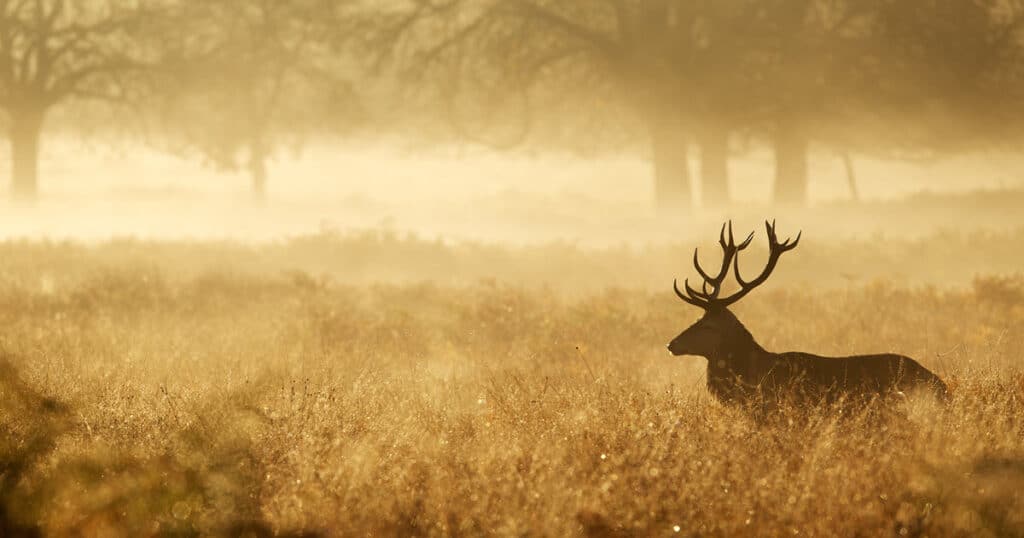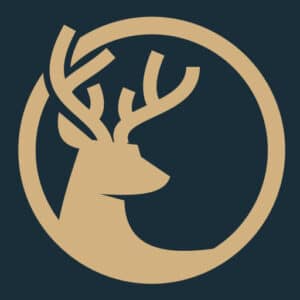There’s a lot to learn if you’re new to deer hunting. Since it’s technically possible to spot deer at any time of day, maybe you’re thinking you can head out deer hunting in the afternoon. But you’re bound to be disappointed if you do. Keep reading to find out the best time to hunt deer.
The best time to hunt deer is when deer are most active. Deer are most active at dawn and dusk, making these the ideal times for hunting. You should also know that ideal hunting times differ seasonally, and some seasons are better for hunting than others.
Here’s our guide to the best and worst times for hunting deer. You’ll also get essential information on deer habits and behavior tendencies and other factors you should consider before heading out for a hunt. These include location, weather, and mating habits.
When are Deer Most Active?
Table of Contents
ToggleDeer sleep sporadically. They don’t sleep for long periods all at once like we do.
In other words, they take frequent naps. They don’t sleep all through the night or the day.
Deer are what are known as crepuscular creatures, rather than nocturnal. This means they are most active at dawn and dusk.
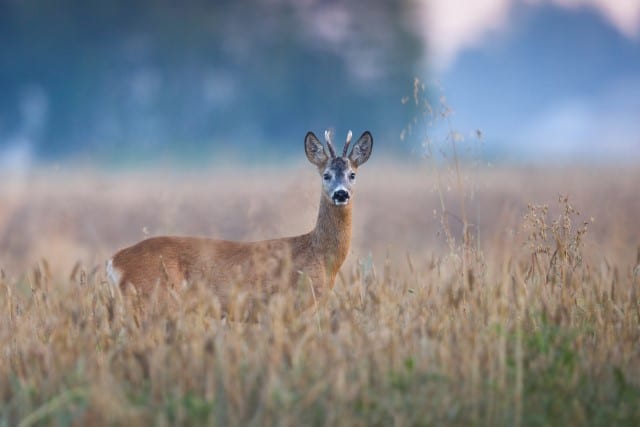
It’s best to hunt deer when they’re more active, so these are generally considered the ideal times for hunting.
Dawn can be difficult to fit into your sleep schedule, but if you’re serious about deer hunting, you’ll have to get used to waking up early and heading out for a hunt.
You need to be in position before you’re ready to take aim at the deer, which usually means heading out hours beforehand.
Dusk can be a good time for deer hunting, but the problem is heading back. Once you’ve shot a deer, it can take hours before you actually find the corpse.
Deer can often run off even after they’ve been hit, meaning you’ll have to track the body.
If this takes a long time, it could be dark by the time you’re ready to head back, and you have to carry the body.
It’s easier to track during daylight, which makes dawn better for hunting.
What Season is Best for Deer Hunting?
First of all, hunting seasons are usually regulated. Find out when hunting season is in the region where you want to hunt.
Regulations can vary quite a bit, so you should always check what they are before heading out for a hunt.
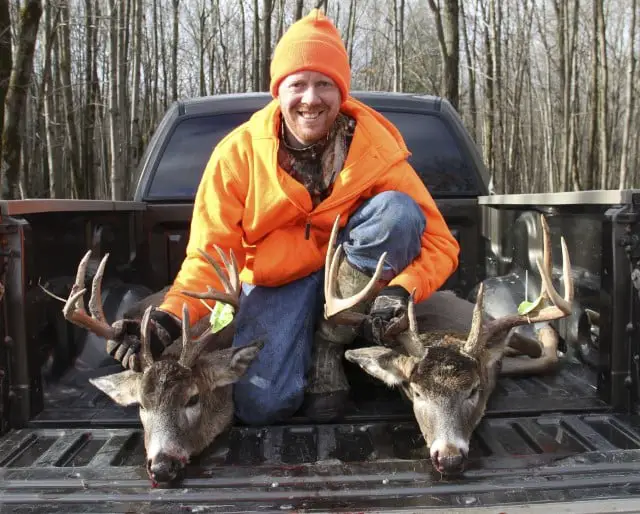
Keep in mind that weather conditions and hunting seasons differ significantly depending on location.
In northern climates, winter and summer have a more marked difference than we see in warmer southern climates, like in Texas. This affects when the hunting season is.
In most regions, hunting season is during the fall. This corresponds with the rut (mating season), when deer are most active.
Weather Conditions
Even though this usually occurs during the fall, there can be a great variation within the season. The early fall is much warmer than the late fall.
Deer are more active during the warmer months, and they are more likely to hang out in places with less shelter.
Yet heading out for a hunt right after a drastic weather change can also be to your advantage.
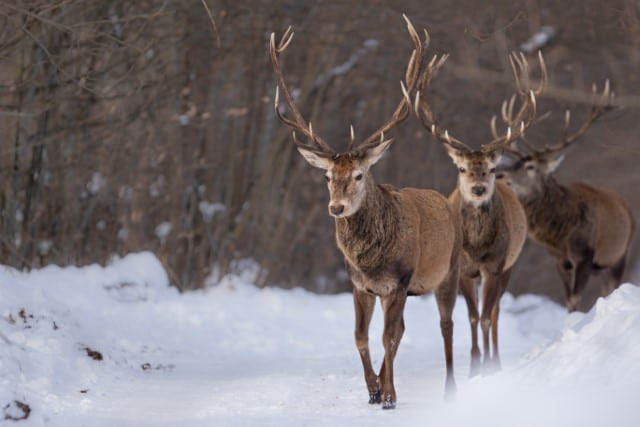
While deer are fairly fast at adapting to changes, they need some time when something big changes. They may be a bit disoriented and distracted, making them easier to hunt.
A huge temperature shift can also make deer more active.
If you’re going to hunt when there’s snow, make sure you have the right gear. You’ll need sturdier boots and heavier coats, for example.
The last thing you want to do is freeze while on a hunt, so make sure to be prepared ahead of time.
Scout out the area before the season so that you know what it’s like and can consider where deer are most likely to hang out and bed down. There are lots of resources on the internet for tracking weather changes.
Ideally, you’ll want to return to the same area year after year so that you know what it’s like during the hunting season.
Even if you scout the space before the hunting season starts, that doesn’t mean it will look the same during the winter.
Timing is Everything
We mentioned earlier that deer are most active during dawn and dusk. The sun rises and sets at different times throughout the year.
Another reason why late fall and winter are more ideal for hunting is that they don’t require that you wake up as early.
This is particularly true the farther north you are. The closer to the poles that you go, the more marked the difference between winter and summer becomes.
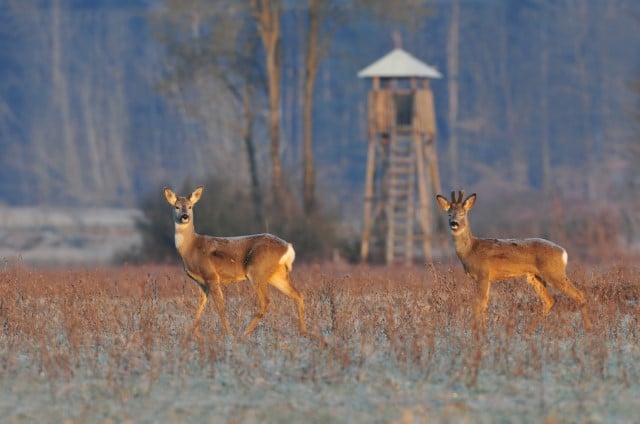
One major disadvantage of winter is that you have less daylight to work with overall.
Make sure you think about daylight savings time when planning your hunt. An hour can make a huge difference, especially if you have a tight schedule.
A lot of hunting is pure luck. You can meticulously plan when you’re going to head out, but even if you consider the weather and timing, you can’t control nature.
And unless you’re hunting on private land, you can’t control other hunters.
If you think you’ve found the best time for hunting, other hunters have, too. Hunting during less ideal times makes it more difficult to hunt, but it means you’ll have less competition from other hunters.
So, as we’ve seen here, you’ve got to understand timing to figure out the best time to hunt deer.
Can You Hunt Deer at Night?
Maybe you think that because deer are active at night, this is an ideal time for hunting. That would be a mistake.
Nighttime definitely isn’t the best time to hunt deer.
Night hunting is not ideal for humans because of our schedules. It also creates significant disadvantages.
Deer see much better than humans at night. Even if you have night vision technology, you won’t be able to see as well as a deer when it’s dark.

The logistics of night hunting also aren’t great.
As we mentioned earlier, it can take a while to actually find a deer’s corpse and bring it back. You don’t want to be doing this at night.
Most areas actually have restrictions on night hunting. Darkness impairs human vision, so accidents are more likely.
Firing a gun is potentially dangerous enough to begin with, and even more so when you can’t see well.
Some local authorities allow bow hunting at night. However, it will be a lot more difficult than during the day.
Make sure you are wearing orange gear that makes you visible to other hunters and that you’re up for the challenge.
Some experienced hunters prefer night hunting because they enjoy an extreme challenge. There’s also less competition from other hunters.
You’ve got to think about moonlight conditions when hunting at night.
A full moon provides a lot of light, which can be helpful for you, but it will work to the deer’s advantage since deer see better at night than we do.
Where Should You Hunt Deer?
First and foremost, you should only hunt deer where it is allowed. There are public and private lands dedicated to hunting.
Hunting in other areas is dangerous and just not a good idea.
Ideally, you should be familiar with the area where you’re hunting. If you’re not, it’s best to go with an experienced local hunter.

You can also use online resources to increase your familiarity with the area.
Looking up these resources can be pretty handy even if you think you know everything about an area.
Maybe there’s something you never considered about the area or a secret hiding spot in the habitat that you didn’t know about.
You should hunt deer in places where they are most likely to be active, when they prefer to feed, or where they are likely to hide.
These are often spaces with good access to resources like water and food. Deer need good shelter, but they also need escape routes from potential predators.
Scout out deer bedding areas before you head out hunting.
Bedding areas can be hard to spot at first, but it gets much easier once you get into the habit of looking for them.

You need to consider other hunters when scouting an area. Private lands are less likely to have competition.
If you think you’ve found the perfect spot for hunting, so has everyone else.
Deer avoid humans as much as possible. Deer will probably pick up a heavy human presence quickly and head somewhere else.
Now You Know the Best Time to Hunt Deer
Hunting is an art that takes years of experience to master. The things we’ve talked about here aren’t the only things you need to think about before you start hunting, but they’re the primary factors influencing a hunt.
The main things to consider when timing your hunt are when and where deer are most likely to be active, the potential hunting competition, and the lighting conditions.
And remember, luck plays a big part in hunting! Don’t be discouraged if your first few hunts aren’t successful.

